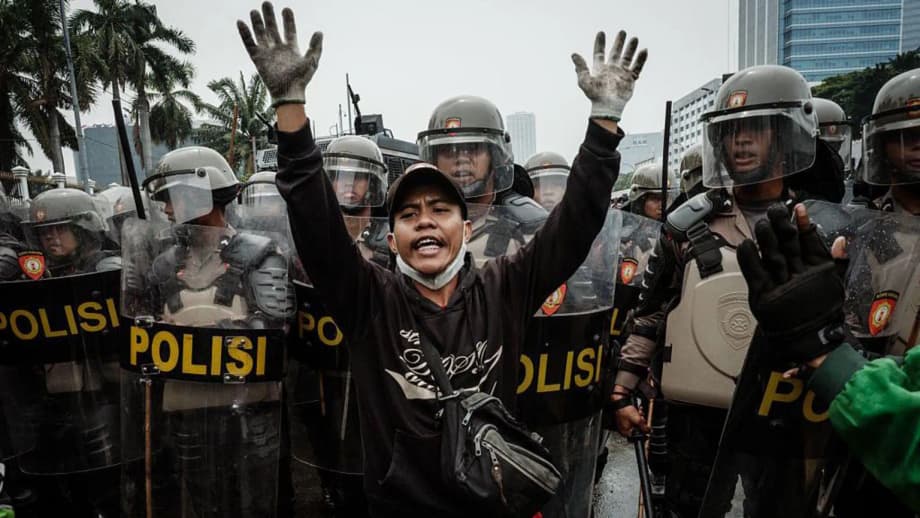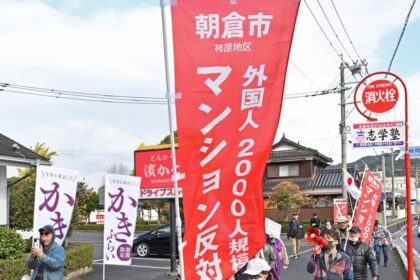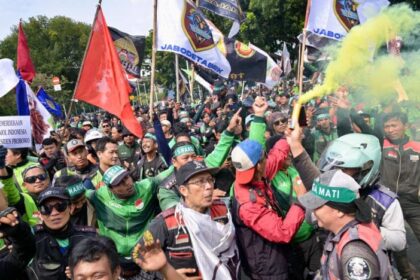Why a new allowance sparked a backlash
Indonesia is again in the grip of public anger after lawmakers received a sharp rise in funding for constituency work during parliamentary breaks. The House of Representatives has set a new recess allowance of 702 million rupiah (about 42,400 dollars) for each break, nearly double the previous 400 million rupiah. It took effect on 3 October and applies to all 580 lawmakers. Parliament usually takes about five recesses a year, when members return to their districts to meet residents and local officials, gather feedback, and distribute support for community programs.
- Why a new allowance sparked a backlash
- How protest forced rapid reversals in August
- What the recess allowance covers and why it is contentious
- Officials defend the increase
- Public trust and political risk
- How other countries treat constituency work costs
- An economy under pressure frames the debate
- What stronger transparency could look like
- Highlights
Recess allowances are designed to cover travel across a vast archipelago, event costs, rental of venues, staff support, and other work in constituencies. The scale of the increase, arriving only weeks after violent protests over lawmakers’ perks, has stirred accusations that political leaders are out of touch with economic hardship faced by many Indonesians. If fully drawn five times in a year, the new rate would take the total available recess funds for each lawmaker to more than 3.5 billion rupiah in a year (roughly 212,000 dollars, with 1 dollar at about 16,580 rupiah), making it one of the most generous constituency work budgets in the region.
Deputy House Speaker Sufmi Dasco Ahmad said the change reflects a busier schedule during recess and higher expenses for food and transportation in recent years. He also announced plans for a public digital reporting system where lawmakers will log their spending, which would allow citizens to review how funds are used. The pledge came after the government and parliament moved in late August to roll back some benefits, including a 50 million rupiah monthly housing allowance, that had triggered the country’s most intense unrest in decades.
Confidence has been shaken by missteps. Reports emerged that some lawmakers received an extra 54 million rupiah by mistake during the rollout. Officials called it human error and said the money was reclaimed. Civic groups argue the episode shows why stronger oversight is needed. One of Indonesia’s leading parliamentary watchdogs voiced what many citizens feel.
Lucius Karus, a researcher at Formappi, said the public had just watched one perk vanish only to see another appear.
“It is like Indonesians have been pranked. We were satisfied by the abolition of the housing allowance, but another fantastic allowance has appeared.”
How protest forced rapid reversals in August
In August, thousands of students, labor groups, and community organizations rallied in Jakarta and cities across the archipelago to oppose perks for lawmakers, especially the new housing allowance of 50 million rupiah per month. Anger deepened after a 21-year-old motorcycle taxi driver, Affan Kurniawan, died when a police vehicle struck him near a demonstration. The incident, captured on video, spread fast on social media and fueled larger crowds and a harder edge to the protests.
The unrest reached 32 of Indonesia’s 38 provinces, with clashes, arson at regional parliament buildings, and widespread looting. Authorities reported at least 10 deaths and more than 5,000 arrests as the situation worsened. President Prabowo Subianto promised an investigation into the fatal incident, canceled overseas travel plans, and announced measures with party leaders to dial back lawmakers’ perks. Housing allowances were cut and overseas trips for parliament members were suspended under a new moratorium. Police and military were told to restore order, and checkpoints appeared around the capital.
By early September, protests had largely faded as organizers weighed risks of further confrontation. Yet the underlying complaints, from a rising cost of living to a sense that accountability is weak, remained powerful. The renewed debate over recess allowances has reopened those wounds.
What the recess allowance covers and why it is contentious
Legislators use recess to conduct official business in their districts. That includes travel to remote villages, hiring halls for meetings, paying local staff stipends during outreach, and covering logistics for surveys and public forums. Indonesia is a nation of more than 17,000 islands and travel is expensive. Airfares between islands, fuel, and accommodation have risen in recent years. Lawmakers and the House argue the previous allowance was based on the 2019 to 2024 period and did not reflect today’s prices.
A budget that dwarfs average incomes
Many Indonesians are struggling with living costs and uneven wages. The protests in August focused on the housing allowance because it was roughly ten times the minimum wage in Jakarta. Recess funding does not go directly into personal pay, but critics say the sums now available for each break far exceed what most citizens would consider necessary. The total available per lawmaker across multiple recess periods could exceed what many Indonesians would earn in decades, which is why the increase has drawn wide criticism. In international comparisons, constituency work budgets exist in many democracies. The question is how they are audited and whether the scale matches local realities.
Critics also point to repeated administrative errors. The mistaken extra 54 million rupiah payment to some lawmakers, later clawed back, raised concerns about controls. Public trust will rely on tight bookkeeping, full receipts, and regular public reporting. Without that, even legitimate field expenses may be viewed with suspicion.
Officials defend the increase
Deputy Speaker Sufmi Dasco Ahmad has been the main public face defending the move. He said the new figure reflects higher activity and price increases in the years since the last allowance was set. He added that the allowance had been approved earlier by the finance ministry and presented as an administrative update, not a new benefit engineered after protests.
He has also presented the digital reporting system as a brake on misuse. After outlining the rationale, he stressed that prices for food and transport have risen and that members are expected to be more active during their breaks.
“The previous allowance did not account for rising food and transportation costs. This adjustment supports higher activity during recess while ensuring spending is reported to the public.”
Public trust and political risk
For many Indonesians, the issue is less about whether lawmakers need funds to do their jobs and more about whether those funds are warranted at this scale and properly tracked. Comments on social media accuse political elites of acting with impunity, while several posts questioned why the same politicians continue to win elections despite repeated controversies. Civic groups say the response from authorities has often focused on security, not accountability, which fuels frustration.
Indonesia has a long and complex struggle against corruption. The national anti-graft commission once had a tough reputation, but legal changes in recent years have weakened its bite. In that context, every perk or allowance is viewed through a lens of skepticism. The August violence erupted precisely because people saw a generous new benefit approved at a time of economic strain. Even after housing perks were cut and overseas trips were put on hold, the near doubling of the recess allowance has revived perceptions that the political class is insulated from the pressures facing ordinary households.
Officials hope a transparent system will lower the temperature. That will require more than a new app. It will require timely disclosures, consistent audits, and consequences for misuse. Without those reforms, a promised fix could look cosmetic.
How other countries treat constituency work costs
Many parliaments fund constituency work. In Australia, lawmakers receive an electorate allowance of roughly 25,000 to 37,000 dollars per year depending on the size of their districts. That sum is annual, not per recess. In the United Kingdom and Canada, legislators claim expenses for travel and offices, and independent bodies review submissions, publish reports, and can impose penalties. The principle is the same, to keep constituency services running without inviting personal enrichment.
Comparisons are imperfect because countries differ in geography, prices, and oversight systems. Indonesia’s travel needs can be outsized because it is an island nation. The question critics ask is whether the new rate of 702 million rupiah per break, taken multiple times a year, is the right scale and whether oversight will be strict enough to avoid waste. Publishing detailed expenses, down to line items, is one way peers abroad have reinforced public trust.
An economy under pressure frames the debate
Indonesia is Southeast Asia’s largest economy and a member of the G20, but tens of millions still live in poverty or near-poverty lines. The cost of staples has risen in recent years, with food and fuel weighing heavily on household budgets. For citizen groups, that reality makes any rise in political benefits a flashpoint. The August protests reflected a broader frustration with inequality and a belief that public money is not always spent where it is most needed. That is why even administrative updates draw intense scrutiny.
The spread of unrest in August was unprecedented in years. Investors watched the turbulence closely, and authorities moved to stabilize streets and financial markets. Those events continue to shape how voters read news about any benefit enjoyed by politicians. Every change now lands in a country still raw from clashes, arrests, and public mourning for those who died.
What stronger transparency could look like
Officials have promised a public-facing app where every lawmaker must upload reports on recess spending. If that platform is comprehensive and easy to use, it could help close the trust gap. The key is to commit to clear rules and visible enforcement. That includes prompt corrections when errors occur and penalties for violations.
Several practices would make the system credible to skeptical citizens:
- Publish itemized expenses and underlying receipts within a fixed number of days after a recess ends.
- Require independent audits and make summaries public on a regular schedule.
- Set caps for categories like travel, venues, and staff, with any exception disclosed and justified.
- Show each lawmaker’s total available allowance and remaining balance for the period.
- Impose sanctions for late or incomplete reporting, including repayment and suspension of access to funds.
The mistaken extra 54 million rupiah payment shows why built-in controls matter. Automated flags for overpayments and public dashboards would let citizens and journalists spot problems quickly. If the system is thorough, it will help lawmakers show that legitimate field work is what the money is funding.
Highlights
- Lawmakers’ recess allowance rose to 702 million rupiah per break, nearly double the previous 400 million rupiah, effective 3 October.
- Parliament typically takes about five recesses per year, which makes the available annual total for constituency work exceed 3.5 billion rupiah per lawmaker if fully drawn.
- The increase came weeks after protests over perks, including a 50 million rupiah monthly housing allowance that was later cut.
- At least 10 people died and more than 5,000 were arrested during August unrest that spread to 32 of 38 provinces.
- Deputy Speaker Sufmi Dasco Ahmad said higher activity and rising prices for food and transport justify the new rate and promised a public expense reporting app.
- A parliamentary watchdog said citizens feel misled, calling the new allowance a replacement for a scrapped perk.
- Officials said a mistaken extra 54 million rupiah paid to some lawmakers was due to human error and was reclaimed.
- Comparisons abroad show other countries fund constituency work, but typically with strict audits and public reporting.
- Public trust hinges on full transparency, itemized reporting, and penalties for misuse of funds.












